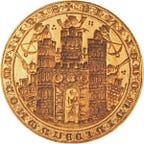“People Died for Your Right to Vote!” Fact Check: False
I get into the same argument with my father at every Irish election: I don’t want to vote because all the choices are so terrible; he gets mad at me because voting is a sacred duty, though that’s not how he puts it. His fundamental argument is that you should vote because “people died for your right to vote”.
This is both an emotional and a factual argument. I hear it a lot, from people from everywhere— I hate it because it’s true in a trivial sense and false in a various senses that are important, but I don’t often hear it refuted, in either it’s emotional or factual forms. The upcoming US elections seem like a good moment to do that. Plus my father isn’t going to read this or respond to it which means I’m guaranteed the win, which is cheap but very satisfying.
So — “people died for your right to vote” is true in that people sacrificed to make your country as it is now, and one way of honouring that sacrifice is by participating in the system they created using the freedoms they secured.
However:
The characteristics that make up a free society come in package. Off the top of my head that package includes freedom of speech, assembly, association, religion, the rights of self-defence, of national self-determination, as well as the right to vote. There are others.
Even if we take these few, the right to vote is not the most important. If I was asked to keep one of these in order to secure the maximal happiness and freedom for myself and those I care about, it would probably be a choice between speech, association and assembly — because if I can’t express my concerns and organise with people who share them, who cares who I vote for? What possibility is there that I will ever be able to vote for someone who can give me what I want?
The people who founded your country, whichever one it is, likely died (or sacrificed, or fought) for the whole package rather than the vote specifically, so it’s a lie to characterise it in that way.
In many cases the right to vote and be represented was one of the few freedoms they already had to some degree and was not central to the fight they undertook. In Ireland pre-1916 there were restrictions in place on seditious speech and political meetings, which presented a far greater obstacle to Irish nationhood than restrictions on voting. Anyone wanting to celebrate freedoms won in independence would be better off exercising the modern ones aligned with those.
There were individual situations where people fought for the right to vote, but I would suggest that was as a way of securing those other, superior freedoms. I can’t think of any situation where all other important freedoms except the right to vote had been attained, and the fight was exclusively over that. Again that is suggestive of a hierarchy of freedoms, with other things at the top.
I can’t help but notice that the kind of person who says “people died for that right” is often the kind of person who never attends a protest, never writes to their representative, never says anything out loud or in writing that might earn them social opprobrium. To the extent that they are dedicated to celebrating our freedoms, it’s only the freedom that is the easiest to exercise and which presents the least personal risk that they will celebrate.
This leads me to believe that these are just people who are complacently satisfied with our current societal arrangements, and want to puff themselves up by presenting that complacency as patriotism. Their complacency has also made them democracy fetishists — people who have forgotten that the value of democracy is what it can do for us, and not it’s outward forms and rituals.
Freedom of speech and association are being eroded right now, everywhere, so this is important. I don’t agree that so long as we retain the totemic right to vote, the erosion or subversion of all other freedoms is irrelevant. But that is the implicit effect of any rhetoric that makes voting alone sacred: it legitimises our own current disenfranchisement. Sure you can vote can’t you? What are you complaining about?
In summary very few people ever died exclusively for the right to vote in isolation from other freedoms; many revolutionaries began their revolutions despite the fact that vote was already secured. Placing too great an emotional value on voting lets technocratic elites off the hook, and lets the voters off the hook by making the freedom which is easiest to fulfil, presents the lowest personal risk, and is the most useless in isolation the only one that matters.
About my arguments with my father — I think he’s wrong, but I always end up voting anyway. This is because I’m a bourgeois sucker, but more fundamentally it’s because it gives me licence to complain about whoever is elected. And as all social media users know — that is the real sacred value.
